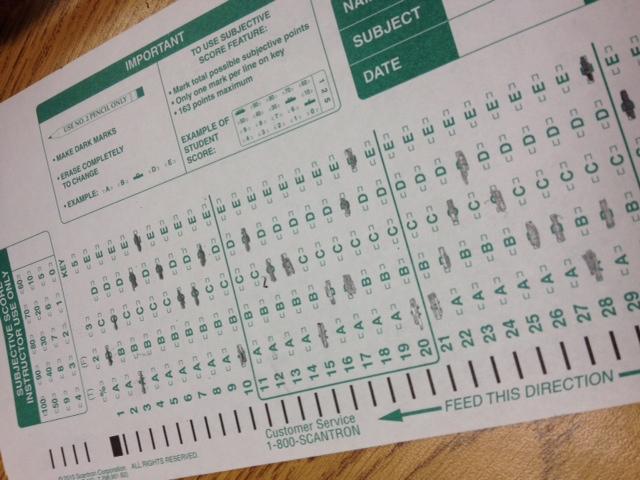The Pretest Test: Designed for students to fail
This year, students entering the GRHS took pre-assessment tests in each of their subjects in order to measure their academic growth during the 2013-2014 school year—and everyone failed. While this would concern most teachers, the teachers at the GRHS aren’t worrying about it too much.
Yet if over 50% of the class failed, generally, the test would need to be evaluated. If 100% of the class failed, the teacher would need to reevaluate himself/herself to figure out what the cause of the problem.
So why aren’t teachers concerned about this issue?
The TEACHNJ Act, the New Jersey’s teacher tenure law, states that teachers are required to place evaluations on their students to measure their students’ growth throughout the year. Using SGOs, or Student Growth Objectives, student growth can be exhibited through constructed pre- and post-assessments.
According to the State of New Jersey Department of Education website: “An assessment of skills, foundational knowledge, and the use of past learning data, for example, provides rich information about how prepared students are for a given course. Armed with this information, teachers will be able to set ambitious but achievable goals for these students. The SGO assessment will determine how much the students learned or ‘grew’ between the beginning and end of the instructional period.”
“So this pre-assessment test is simply a test designed to show where the students stand academically in the beginning of the year, and then we give the same test over again in the last part of the year and, hopefully, the students will grow from a certain grade to a higher grade,” Mr. Dattolo, a teacher of 42 years, explained.
Thus meaning that the evaluations are based on materials the students have yet to learn. Or, in other words, these assessments are designed for the students to fail.
Are teachers required to use a pre-assessment?
Teachers are not required to use pre-assessments. There are other methods of determining student’s SGO, as the assessments are simply used to collect baseline data. Actually, pre-assessments are discouraged because it is shown that it may be challenging to motivate the students to do their best. Additionally, they take much time out of teachers’ schedules to create and grade, and, also, take valuable class time away from students.
Sophomore Hailey Nirenberg said, against the pre-assessments, “I don’t even try to do well on them because they don’t count against my grades. I just think they’re a waste of time.”
“If this method does work, I’ll be in favor of it,” Mr. Dattolo, a World Language teacher conveyed, “I wanna see it actually be effective, and if it is, I’ll be happy.”

Anna is a senior at Glen Rock High School and has been writing for The Glen Echo for two years. She enjoys music and performing in Woman's Chorale and...







